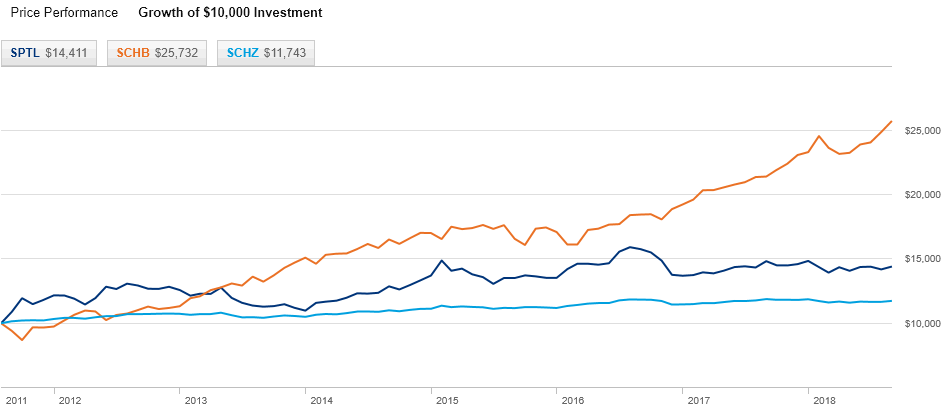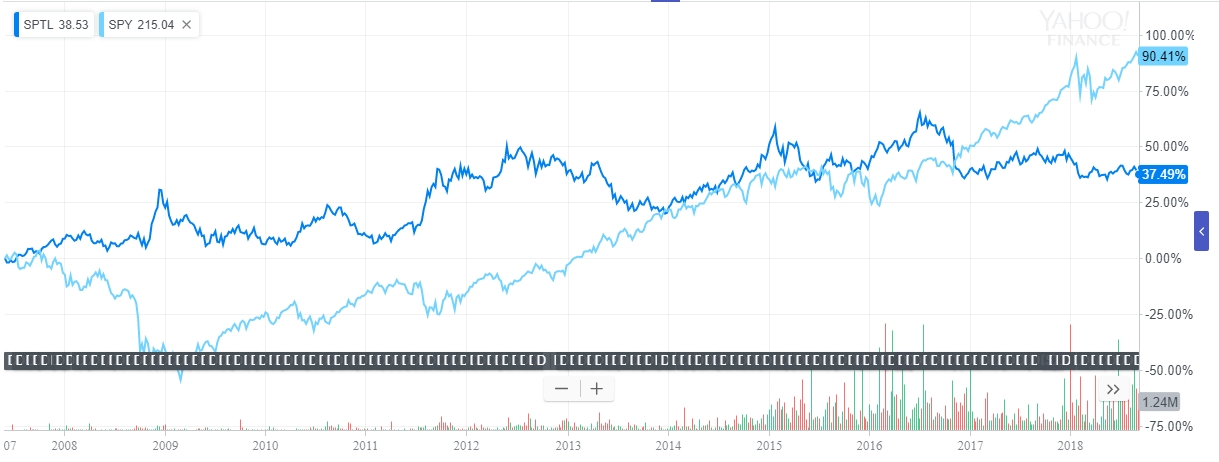I'm debating whether to include any long term US treasury bond ETF in my portfolio. Are there any reasons I would include it rather than go for other types such as intermediate term bond ETFs and US broad market ETFs? After looking at the comparison of the growth of $10,000 graph, I don't see much reason to have long term bond ETFs.
- Light blue - SCHZ: Schwab US Aggregate Bond ETF
- Dark blue - SPTL: SPDR Long Term Treasury ETF
- Orange - SCHB: Schwab US Broad Market ETF
Volatility
The long term bonds have huge bumps. This means higher volatility. This goes against bonds intended purpose of bonds: to provide a steady and safe source of income. Looking at the intermediate term bond fund, you see that the line is much smoother - a good quality of bonds.
Total Return
The return of the long term bond ETF over 5 years is only 5%, while the US broad market ETF has a return of 14%. Obviously, people want the one with higher return.


